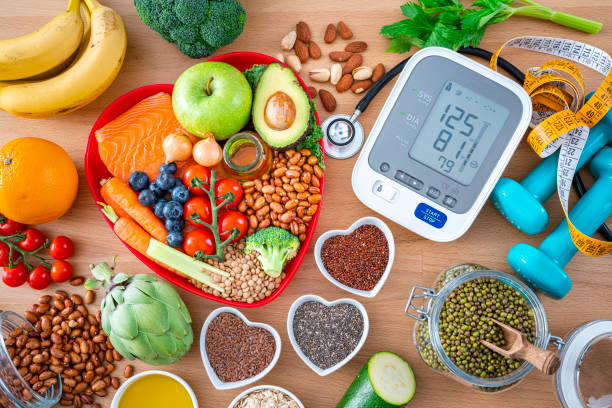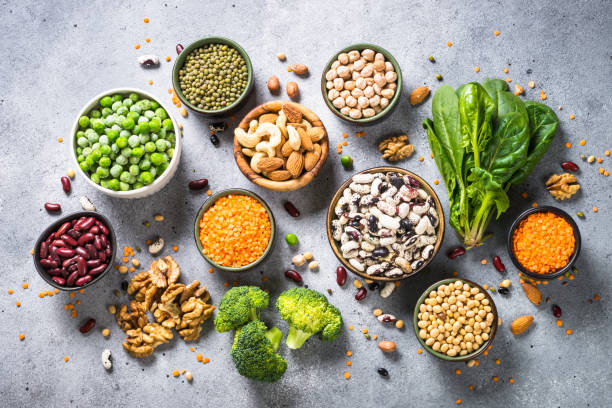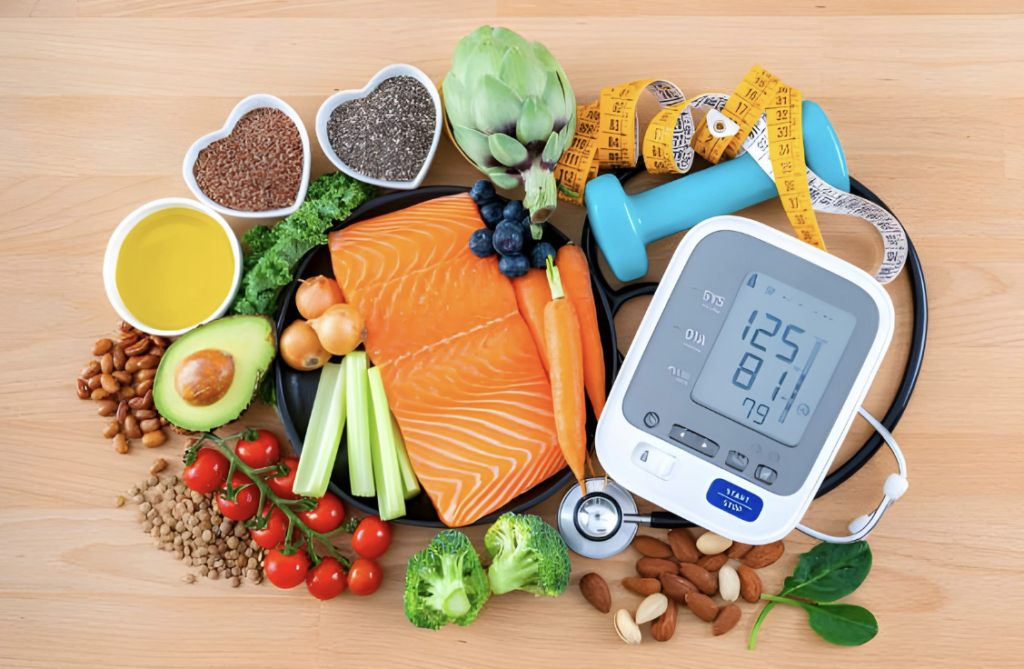Kinds of Diets
Can Going Vegetarian Really Lower Your Cholesterol?
Can going vegetarian actually lower your cholesterol? It’s a question that many health-conscious people consider as they work to improve their well-being. Cholesterol, a fatty chemical found in animal products, has been related to heart disease and other health issues. As a result, adopting a vegetarian diet has gained popularity as a possible cure. But does it actually make a difference?
In this article, we’ll look at the science behind the vegetarian diet and its effects on cholesterol levels. You’ll learn about the possible benefits of plant-based diets, which are often low in saturated fat and can help lower cholesterol levels. We’ll also talk about the benefits of a well-balanced vegetarian diet and offer advice on how to make the shift.
Whether you’re thinking about becoming a vegetarian or are simply interested about the potential benefits, this article will give you with the facts you need to make informed diet and cholesterol-management decisions. So, let’s find out the facts about turning vegetarian and how it affects your cholesterol levels.

The Link Between Cholesterol and Diet
Cholesterol is a waxy chemical produced by the liver and present in certain meals. It is essential to the body’s function, aiding in the formation of cell membranes and hormone production. High cholesterol levels, particularly LDL cholesterol, have been linked to an increased risk of heart disease and stroke. Diet has a considerable impact on cholesterol levels, with saturated and trans fats in animal-based products being the primary culprits for boosting LDL cholesterol.
Vegetarians avoid meat, poultry, and fish in favor of plant-based foods such fruits, vegetables, legumes, grains, nuts, and seeds. This dietary decision can have a substantial impact on cholesterol levels since it emphasizes eating foods that are low in saturated fat and devoid of dietary cholesterol. Vegetarians who forego animal products may minimize their intake of dangerous cholesterol-raising chemicals.
However, it’s crucial to understand that not all vegetarian diets are the same. Maintaining appropriate cholesterol levels requires a well-balanced vegetarian diet rich in plant-based protein, healthy fats, and whole grains. Simply eliminating meat from the diet without considering the total nutritional makeup may not produce the intended cholesterol-lowering results. It is critical to consider the quality and diversity of plant-based foods ingested in order to maintain a healthy balance.

Research on Vegetarian Diets and Cholesterol Levels
Numerous research have looked into the impact of vegetarian diets on cholesterol levels, offering significant information on the potential advantages. A meta-analysis published in the journal Nutrition Reviews looked at 30 studies and discovered that vegetarian diets, particularly vegan diets, were related with lower total cholesterol levels than non-vegetarian diets.
The researchers also discovered that vegetarian meals improved LDL cholesterol levels. A research published in the American Journal of Clinical Nutrition examined the effects of a vegetarian diet to a traditional low-fat diet on cholesterol levels. The findings revealed that both diets were efficient at lowering LDL cholesterol levels, but the vegetarian diet had a greater impact.
Another study published in the Journal of the American Heart Association examined data from more than 12,000 participants and discovered that vegetarians had lower LDL cholesterol levels than non-vegetarians. The researchers linked this effect to vegetarian diets containing more plant sterols, fiber, and unsaturated fats.
These data imply that a vegetarian diet, particularly one that is plant-based and low in saturated fat, can improve cholesterol levels. Individual outcomes may vary, therefore it’s crucial to consider other factors including genetics, lifestyle, and overall food quality.

Foods to Focus on in a Vegetarian Diet for Lowering Cholesterol
To reap the cholesterol-lowering benefits of a vegetarian diet, focus on specific items that have been shown to be healthy. Incorporating these foods into your daily diet can improve your cholesterol levels and general heart health.
- Fruits and vegetables: Fruits and vegetables should be the foundation of a vegetarian diet. They are naturally low in saturated fat but high in fiber, antioxidants, and other heart-healthy elements. To gain the most nutritional value, choose a range of bright fruits and vegetables.
- Whole grains: Choose whole wheat, brown rice, quinoa, and oats. These are high in fiber, which may help decrease LDL cholesterol levels. They also supply important vitamins, minerals, and antioxidants.
- Legumes: Beans, lentils, chickpeas, and other legumes are rich in plant-based protein and fiber. They are low in saturated fat and may help lower LDL cholesterol levels. Add legumes to soups, salads, stews, and other recipes to boost nutrition.
- Nuts and seeds: Almonds, walnuts, chia seeds, flaxseeds, and other nuts and seeds contain heart-healthy lipids, fiber, and plant-based protein. A handful of nuts or a spoonful of seeds every day can help with cholesterol levels.
- Plant sterols: Plant-based foods such as enriched margarine, orange juice, and yogurt include plant sterols, which have been demonstrated to lower LDL cholesterol. These meals can help you regulate your cholesterol even more effectively.
By focusing on these food groups and incorporating them into a well-balanced vegetarian diet, you can create a cholesterol-friendly eating plan that supports your overall health and well-being.

Tips for Adopting a Vegetarian Diet for Cholesterol Management
If you’re considering adopting a vegetarian diet to manage your cholesterol levels, here are some practical tips to help you make a smooth transition:
- Start gradually: Rather than making major changes all at once, gradually move to a vegetarian diet. Begin with one vegetarian meal each day, gradually increasing the number of vegetarian meals over time.
- Educate yourself: Learn about the various types of vegetarian diets, including lacto-ovo vegetarian, vegan, and flexitarian, to determine which one best meets your interests and health goals. Learn about the nutritional requirements and possible sources of important elements in a vegetarian diet.
- Experiment with new recipes: Seize the opportunity to discover new flavors and cuisines. Look for vegetarian dishes that include a range of plant-based products, and try out different cooking methods. This will help make your meals more intriguing and pleasurable.
- Seek support: Join vegetarian communities, online forums, or local groups to interact with others who share your interests and can offer advice. A support network can help make the switch to a vegetarian diet go more smoothly and pleasurable.
- Consult a Registered Dietitian: If you have specific dietary concerns or medical conditions, it is always advisable to seek professional advice. A trained dietitian can assist you in developing a personalized meal plan that satisfies your nutritional requirements while supporting your cholesterol management goals.

Potential Challenges and Solutions When Transitioning to a Vegetarian Diet
While adopting a vegetarian diet can have numerous health benefits, it’s important to be aware of potential challenges that may arise during the transition. By understanding these challenges and proactively finding solutions, you can set yourself up for long-term success.
- Nutritional deficiencies: Eliminating certain animal-based foods from your diet can increase the risk of nutrient deficiencies, such as vitamin B12, iron, calcium, and omega-3 fatty acids. To mitigate this, ensure you’re consuming a wide variety of plant-based foods and consider supplements if necessary.
- Social situations and dining out: Dining out or attending social gatherings may present challenges when following a vegetarian diet. Research vegetarian-friendly restaurants in advance, communicate your dietary needs to hosts or servers, and consider bringing a vegetarian dish to share.
- Cravings and food choices: It’s natural to have cravings for familiar foods when transitioning to a vegetarian diet. Explore vegetarian alternatives for your favorite dishes, experiment with new recipes, and focus on discovering new flavors and textures to satisfy your cravings.
- Family and cultural influences: Family and cultural traditions may not align with a vegetarian diet, leading to conflicts or feelings of isolation. Openly communicate with your loved ones about your dietary choices and try to find common ground. You can also adapt traditional recipes to make them vegetarian-friendly.
By being prepared for these potential challenges and finding suitable solutions, you can navigate the transition to a vegetarian diet with confidence and successfully manage your cholesterol levels.
Other Lifestyle Factors That Can Influence Cholesterol Levels
While adopting a vegetarian diet can have a positive impact on cholesterol levels, it’s essential to consider other lifestyle factors that can influence your overall cardiovascular health. Here are some additional factors to keep in mind:
- Physical activity: Engaging in regular physical activity can help raise HDL cholesterol levels and improve overall cardiovascular health. Aim for at least 150 minutes of moderate-intensity exercise or 75 minutes of vigorous exercise per week.
- Maintaining a healthy weight: Excess body weight, especially around the waist, can contribute to higher cholesterol levels. Focus on maintaining a healthy weight through a combination of regular physical activity and a well-balanced diet.
- Avoiding tobacco smoke: Smoking can lower HDL cholesterol levels and increase the risk of heart disease. If you smoke, seek professional help to quit, and avoid exposure to secondhand smoke.
- Limiting alcohol consumption: While moderate alcohol consumption may have some cardiovascular benefits, excessive drinking can raise triglyceride levels and contribute to high cholesterol. Limit alcohol intake to moderate levels or avoid it altogether.
By incorporating these lifestyle factors into your cholesterol management plan, you can optimize the potential benefits of a vegetarian diet and improve your overall cardiovascular health.

Consulting With a Healthcare Professional for Personalized Advice
While the information in this article is a useful reference, keep in mind that everyone’s health demands are different. If you have any special health concerns or medical issues, you should contact with a healthcare practitioner or qualified dietitian before making any major dietary changes.
A healthcare professional can evaluate your particular health status, perform necessary tests, and provide personalized advice based on your needs. They can guide you through the complexity of cholesterol management, offer advice on adopting a vegetarian diet, and track your progress over time.
Conclusion
Finally, adopting a vegetarian diet may help to lower your cholesterol and enhance your cardiovascular health. You can improve your cholesterol profile and lower your risk of heart disease by eating more plant-based foods that are low in saturated fat and high in fiber. However, you must consider the entire nutritional makeup of your vegetarian diet to ensure a well-balanced intake of critical elements.
Remember to start slowly, educate yourself about vegetarian diets, try new dishes, seek support, and consult with a trained dietitian if necessary. Be aware of potential problems and devise appropriate solutions to make the shift to a vegetarian diet sustainable in the long run.
Trusted Health, Wellness, and Medical advice for your well-being


